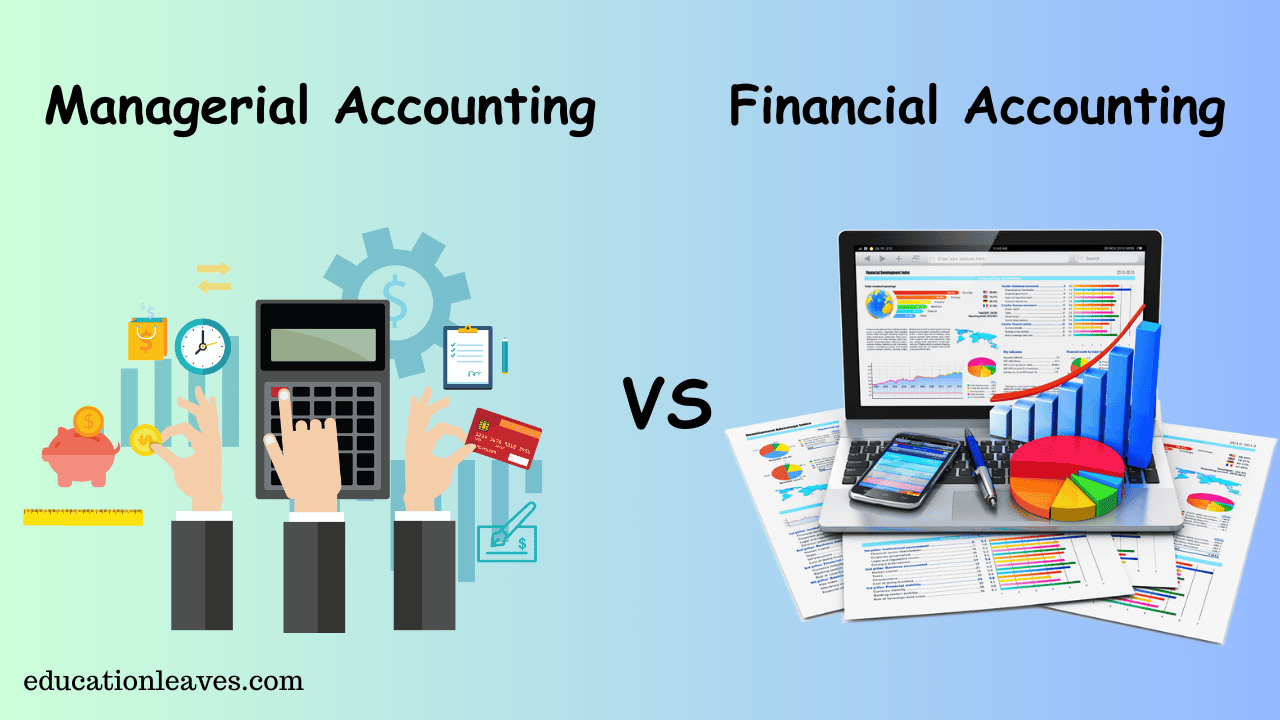In this article, we’ll explore the key differences between managerial accounting and financial accounting. Both play crucial roles in the business world, but they serve different purposes. So, let’s dive right in!
What you are going to learn?
What is Managerial accounting?
Managerial accounting, also known as management accounting, is a discipline within accounting that focuses on providing financial and non-financial information to internal users (such as managers and executives) within an organization. It involves identifying, measuring, analyzing, interpreting, and communicating financial data to support decision-making, planning, and controlling activities.
The primary objective of managerial accounting is to assist managers in making informed business decisions that can enhance the organization’s performance and efficiency. It involves analyzing and interpreting financial information in a way that facilitates strategic planning, resource allocation, cost management, and performance evaluation.
Managerial accounting differs from financial accounting, which is primarily concerned with reporting financial information to external stakeholders such as investors, creditors, and regulatory bodies. Managerial accounting focuses on providing information that is relevant, timely, and specific to the organization’s internal operations and decision-making needs. Read in detail>>
What is Financial accounting?
Financial accounting is a branch of accounting that prepares and communicates financial information to external stakeholders. Its main objectives are to provide accurate financial statements, ensure compliance with accounting standards, promote transparency, aid decision-making, and provide a historical perspective on an organization’s financial performance.
Financial accounting ensures transparency and accountability to stakeholders, such as investors, creditors, and regulators. It aids in making informed business decisions and complying with tax and legal requirements. Overall, it is essential for the financial health and sustainability of any organization.
Difference between Managerial Accounting and Financial Accounting
Managerial Accounting and Financial Accounting both play crucial roles in the business world, but they serve different purposes. So, let’s dive right in!
1: Definition and Scope
Managerial accounting and financial accounting are two branches of accounting, each serving distinct purposes. Financial accounting focuses on the preparation and reporting of financial information to external parties, such as investors, creditors, and regulatory bodies. On the other hand, managerial accounting concentrates on providing internal decision-making support to managers within an organization.
Financial accounting ensures that the organization’s financial statements are prepared accurately, reflecting the company’s financial performance and position. In contrast, managerial accounting focuses on providing insights to aid in planning, controlling, and decision-making within the organization.
2: Users and Decision-Making
Financial accounting primarily serves external users, such as investors, lenders, and regulatory agencies. These stakeholders rely on financial statements, including the income statement, balance sheet, and cash flow statement, to assess the financial health and performance of the company.
Managerial accounting, on the other hand, caters to the internal decision-making needs of managers within the organization. Managerial accountants analyze and interpret financial data, utilizing tools like cost-volume-profit analysis, budgeting, variance analysis, and key performance indicators (KPIs) to support decision-making.
3. Focus and Time Horizon
Financial accounting has a historical focus, providing a summary of past financial transactions and events. It primarily focuses on presenting the company’s financial position, profitability, and cash flows for a specific period, such as a fiscal year.
In contrast, managerial accounting emphasizes future-oriented decision-making. It helps managers forecast, set budgets, and monitor performance based on current and projected data.
4. Compliance and Flexibility
Financial accounting operates under strict compliance with regulatory requirements, such as tax laws and accounting standards. The financial statements must accurately reflect the organization’s financial performance and position.
Managerial accounting, being an internal function, provides more flexibility in reporting and analysis techniques. The focus is on modifying information to meet the specific needs of managers, allowing for customization and adaptability.
5. Conclusion
In summary, both managerial accounting and financial accounting play vital roles in the business world. Financial accounting communicates financial information to external stakeholders, ensuring compliance with regulations. Managerial accounting, on the other hand, assists managers in making informed decisions, planning, and controlling operations within the organization.

